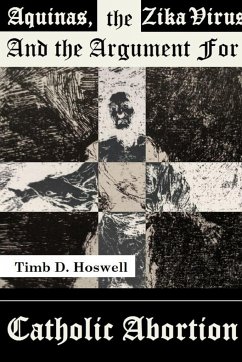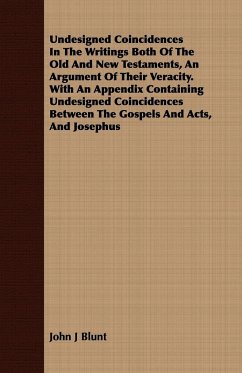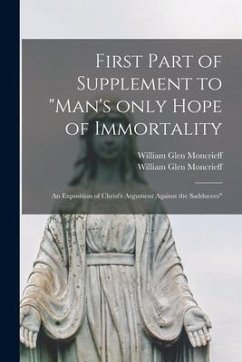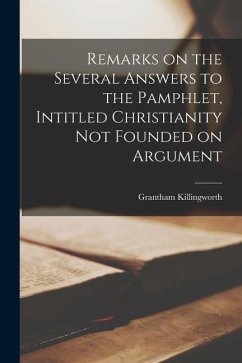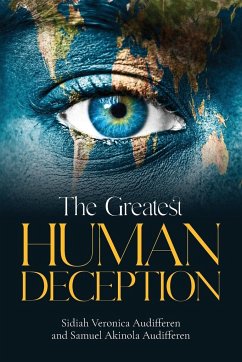
The Argument from Human Behavior
The New Strongest Argument
Versandkostenfrei!
Versandfertig in 1-2 Wochen
13,99 €
inkl. MwSt.

PAYBACK Punkte
7 °P sammeln!
The Argument from Human Behavior is the new strongest argument for God because it has superior epistemology and it understands that God's existence can never be an objective fact. It establishes that we (including martyrs) are able to achieve the "certainty unto death" that God exists through faith in our sense of "wrong" (our sense of everyone's moral obligations). This Argument reveals that when we take our sense of "wrong" seriously, we behave as if we have perceptions of God's existence in our minds! Without God, our sense of "wrong" would be constantly evolving and unenforced. Consequentl...
The Argument from Human Behavior is the new strongest argument for God because it has superior epistemology and it understands that God's existence can never be an objective fact. It establishes that we (including martyrs) are able to achieve the "certainty unto death" that God exists through faith in our sense of "wrong" (our sense of everyone's moral obligations). This Argument reveals that when we take our sense of "wrong" seriously, we behave as if we have perceptions of God's existence in our minds! Without God, our sense of "wrong" would be constantly evolving and unenforced. Consequently, without God, our hard-to-live-by sense of "wrong" would be an absurdity, never qualified to be taken seriously! This essay does not argue that morality comes from God. It does not even argue God exists! This essay does argue that we all have perceptions of God's existence in our minds just as the Biblical God promises in Hebrews 10:16-This is the covenant I will make with them after those days, saith the Lord, I will put my laws into their hearts and in their minds will I write them. The template for the Argument from Human Behavior: Premise 1: If we take any part of our sense of "wrong" seriously, we have perceptions of God's existence in our minds. Premise 2: We all take at least part of our sense of "wrong" seriously. Conclusion: Therefore, we all have perceptions of God's existence in our minds. Corollary: Either an outlandish quirk of evolution put God's existence into everyone's mind or God Himself did it. Explanations: Premise 2: Everyone behaves as if some type of lying or some type of cheating is seriously "wrong." Premise 1: No one, besides God, has the authority to decree anything "wrong." And no one besides God has the power to enforce every "wrong" action. We would consider the rightness and wrongness everyone attaches to human actions nonsense if we did not assume, at least subconsciously, that God authored and enforced these normative valuations. Thus, in order not to esteem our sense of "wrong" an absurdity fabricated by evolution, we would need to have perceptions of God's existence in our minds! Nonetheless, we are free to deny that God actually exists because of the possibility that evolution (or something else) put God's existence into everyone's mind. Even so, everyone who takes any part of his or her sense of "wrong" seriously behaves as if God exists. Outside mathematics and in spite of the problem of induction, we also take a step of faith when we discover scientific facts! The problem of induction is this: No matter how many times a scientific experiment gives the same result, it is not a logical necessity that the next result will be the same. How do we "know," for example, the next slice of bread will nourish us, when it is not a logical necessity for it to do so?! We just have faith that the next result will be the same. Therefore, every scientific fact we have obtained through previous experiences depends on at least one step of faith! We all take hundreds of steps of faith every day when we trust our eyes, other senses and inductive reasoning to accurately reveal reality. Accordingly, it would be highly unreasonable not to take a step of faith and trust that our sense of "wrong" accurately reveals what actually exists-God. Do you really think there is any chance at all your sense of "wrong" is an absurd fabrication?! Know thyself. Think it over.






